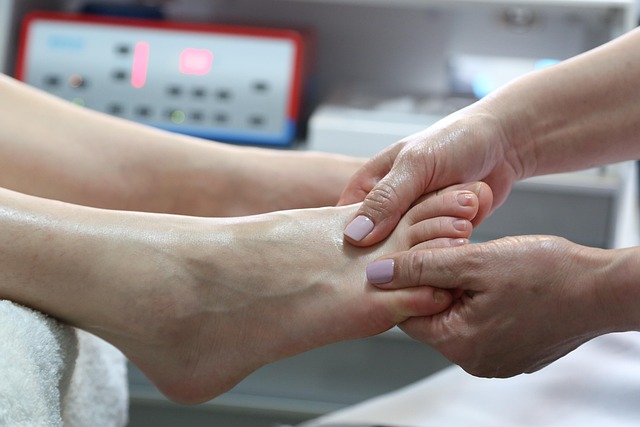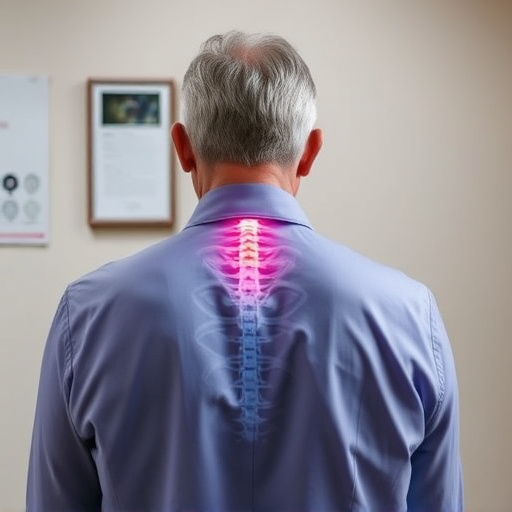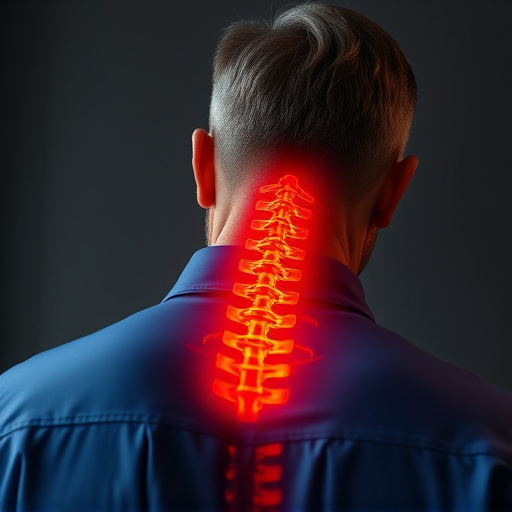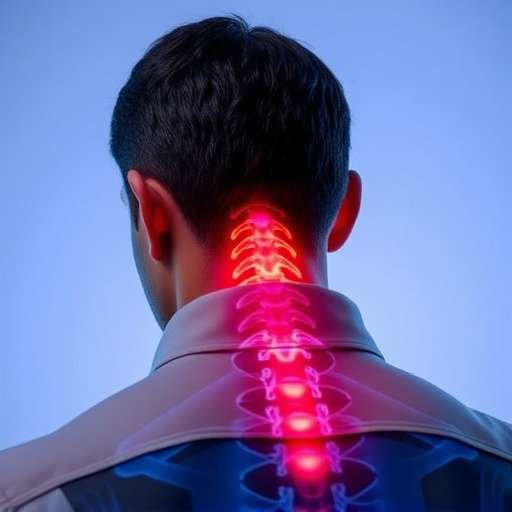Chronic pain from work injuries significantly impacts employees' lives and productivity, necessitating a comprehensive approach in workers' compensation claims. Non-pharmacological treatments like physical therapy, chiropractic care, and acupuncture, along with mind-body practices and Integrative Medicine, offer effective long-term solutions for pain management under workers comp care. Early intervention, personalized rehabilitation plans involving specialists, ergonomic adjustments, and psychological support are vital to mitigating effects and facilitating a safe return to work.
Long-term pain management is a complex and critical aspect of workers’ compensation claims, significantly impacting employees’ return to work and overall well-being. This article explores effective solutions for navigating persistent pain, focusing on non-pharmacological strategies and holistic approaches. We delve into the role of physical therapy, mind-body practices, and integrative medicine in providing lasting relief for injured workers. By understanding the causes and implications, healthcare professionals can build comprehensive management plans tailored to individual needs, enhancing recovery outcomes in workers’ compensation injury care.
- Understanding Long-Term Pain: Causes and Impact on Workers' Compensation Claims
- Non-Pharmacological Approaches for Effective Pain Management
- Role of Physical Therapy in Workers' Compensation Injury Care
- Mind-Body Practices for Sustained Pain Relief
- Integrative Medicine Solutions for Chronic Pain
- Building a Comprehensive Long-Term Pain Management Plan
Understanding Long-Term Pain: Causes and Impact on Workers' Compensation Claims

Chronic pain, when it persists for months or even years, can significantly impact an individual’s life, including their ability to work. In the context of workers’ compensation claims, understanding the causes and effects of long-term pain is crucial. Many workplace injuries lead to ongoing pain that requires specialized care and management. This is especially true for conditions like chronic musculoskeletal disorders, nerve damage, or post-surgical pain that can persist long after the initial incident.
The impact on workers’ compensation claims is twofold. Firstly, it extends the duration of medical treatment and rehabilitation required to manage the pain effectively. Secondly, it may result in reduced productivity, increased absenteeism, and even a need for job modifications or permanent disability adjustments. Early intervention and access to appropriate care, including physical therapy, medication management, and psychological support, are vital to mitigating these effects and ensuring workers can return to their jobs safely and productively.
Non-Pharmacological Approaches for Effective Pain Management

Non-Pharmacological approaches play a pivotal role in long-term pain management, especially for those recovering from work-related injuries covered under workers compensation care. Techniques such as physical therapy, chiropractic adjustments, and acupuncture have proven effective in reducing pain and restoring function. Physical therapy involves tailored exercises to strengthen muscles, improve mobility, and enhance overall resilience against pain. Chiropractic care focuses on adjusting the spine to alleviate pressure on nerves, while acupuncture uses precise needle insertion to stimulate natural painkillers in the body.
These non-invasive methods offer a holistic approach to healing, addressing not just the symptoms but also the underlying causes of pain. They are particularly beneficial for managing chronic conditions that may persist beyond acute injury stages, ensuring individuals receive comprehensive care tailored to their unique needs within the framework of workers compensation injury care.
Role of Physical Therapy in Workers' Compensation Injury Care

Physical therapy plays a pivotal role in workers’ compensation injury care, offering effective long-term pain management solutions. Following an on-the-job injury, affected employees often face challenges in regaining mobility and strength, leading to prolonged discomfort and decreased work capabilities. Physical therapists are trained professionals who design personalized treatment plans to address these specific needs. Through a combination of exercises, manual therapy, education, and patient-specific strategies, they help workers regain functionality, reduce pain, and accelerate their return to work.
In the context of workers’ compensation injury care, physical therapy serves as a holistic approach, focusing not only on treating the immediate physical damage but also on preventing future injuries and improving overall quality of life. Therapists collaborate closely with patients, employers, and medical professionals to create comprehensive rehabilitation programs tailored to individual goals and limitations. This collaborative effort ensures that workers receive the necessary support to manage pain effectively, regain strength, and safely return to their occupational duties.
Mind-Body Practices for Sustained Pain Relief

Many individuals seeking long-term pain management often find solace in mind-body practices, especially those focusing on mindfulness and relaxation techniques. These practices have been shown to be effective in reducing chronic pain, particularly for workers compensation injury care. By training the mind to stay present and cultivating a sense of calm, individuals can break the cycle of pain amplification that often occurs with recurring or persistent injuries.
Mindfulness meditation, yoga, and tai chi are among the popular choices. These practices encourage individuals to focus on their breath and bodily sensations without judgment. This awareness helps in identifying tension and pain patterns, allowing for conscious relaxation and improved pain management. Studies have indicated that regular engagement in these mind-body activities can lead to reduced reliance on pain medication and enhanced overall well-being for those managing long-term injuries through workers compensation care.
Integrative Medicine Solutions for Chronic Pain

Many individuals struggling with chronic pain find relief through Integrative Medicine solutions, especially when dealing with long-term effects of a work comp injury. This holistic approach to care goes beyond traditional Western medicine and incorporates various therapies, focusing on the mind-body connection. Techniques such as acupuncture, chiropractic adjustments, and mindfulness meditation have shown promise in managing persistent pain symptoms.
These alternative treatments often work hand-in-hand with conventional methods, offering a comprehensive strategy for workers compensation injury care. By targeting physical and emotional aspects of pain, patients can experience significant improvements in their quality of life. Integrative Medicine tailors solutions to the individual, addressing specific needs and promoting long-lasting pain relief.
Building a Comprehensive Long-Term Pain Management Plan

Creating a holistic long-term pain management plan is essential for individuals navigating chronic or persistent pain, especially after a worker’s compensation injury. This strategy involves a multi-faceted approach to care, combining various medical and non-medical interventions. The first step is to consult with healthcare professionals who can assess the specific causes and triggers of the pain. This may include specialists like physiotherapists, neurologists, or pain management clinics who can offer tailored treatments.
The plan should incorporate a combination of treatments such as physical therapy, medication management, cognitive-behavioural therapy, and lifestyle modifications. For worker’s compensation injury care, it’s crucial to consider ergonomic adjustments to the workplace and regular reviews with occupational therapists. Additionally, supporting social networks and access to psychological services can significantly enhance recovery and overall well-being.














